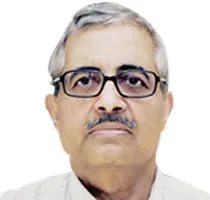Probably no one, least of all in India, could have predicted that the existing uneasy equilibrium in Asia could be upset by one phone call. But, that is exactly what happened when United States-elect Donald Trump spoke Taiwanese President Tsai Ing-wen. How this situation evolves has immense import for India as a State as well as the well-being of its citizens.
Trump has ratcheted this uncertainty by questioning the validity of the ‘One China’ policy. “I don’t know why we have to be bound by a ‘One China’ policy unless we make a deal with China having to do with other things, including trade,” Trump recently told Fox News.
China, which had initially responded with moderation to the news about the Trump-Tsai Ing-wen phone call, the first such contact since 1979, responded vigorously to Trump questioning the ‘One China’ policy.
Describing the ‘One China’ policy as the “bedrock” of US-China relations, the Chinese foreign ministry spokesperson said, “We urge the incoming US administration and its leaders to fully recognise the sensitivity of the Taiwan question … to properly deal with Taiwan-related matters in a prudent manner so as not to disrupt or damage the overall interests of the bilateral relationship.”
This testy exchange has sparked off inevitable speculation about the future of the US-China relationship, undoubtedly the most important relationship of the early 21st century.
Trump appears to believe that China has risen in recent times by taking undue advantage of the existing international world order underpinned by the US as well as of the relative US decline. He believes that China has gained more economically and strategically than the US from their bilateral relationship.
Therefore, to “Make America Great Again” he seeks to renegotiate US ties with China, primarily on the economic front. Taiwan, the questioning of the “One China” policy are chips that Trump is throwing into the pot hoping to up the ante and force China to the negotiation table. To take the edge off his provocative statements, he has appointed as ambassador to China, the governor of Iowa, Terry Branstad, who has long-standing ties with China’s leader Xi Jingping.
Trump scents a deal and appears confident that he will be able to cut one. Equally, he should recognise how closely the two countries are intertwined and the negative global effect of any significant disruption.
Trump also appears to instinctively understand that US-China ties do not exist in a vacuum. The US will renegotiate its ties with several other East Asian powers, among them, Japan, South Korea, and others. His demand that they contribute more towards their security cannot but worry China. Asian countries that feel threatened by China’s rise strengthening themselves militarily and forming a loose entente around the US could effectively balance China’s rise.
Herein lies Trump’s understanding of the special role Russia has to play not only in the fight against Islamic State, but in setting up an effective balance of powers in the world, particularly Asia. Russia and Japan agreeing to restore military contacts is probably a precursor of events to come. This explains Trump’s desire to improve relations with Russia, despite neocon and liberal interventionist opposition in Washington.
Whether Trump will succeed in containing China’s ambitions and reasserting US dominance depends on a variety of factors that are not all under his control. China’s ability to protect its interests should also not be underestimated.
Where does that leave India? In principle, India should not have any contradiction with the US improving relations with Russia, a militarily stronger Japan, South Korea, and Vietnam, and efforts to reduce the tensions associated with China’s rise. As long as negotiations between the US and China do not see the emergence of a G2, India should probably cautiously welcome it.
It should simultaneously strengthen its ties with all the major global powers, including the US, Russia, China, and Japan.
But, most importantly, India should understand from Trump’s approach that no one is going to pull India’s chestnuts out of the fire for it. India will have to do develop its own strength to do that successfully.
This commentary originally appeared in The Hindustan Times.
The views expressed above belong to the author(s). ORF research and analyses now available on Telegram! Click here to access our curated content — blogs, longforms and interviews.




 PREV
PREV


